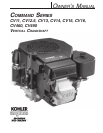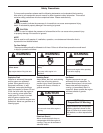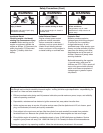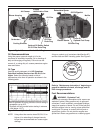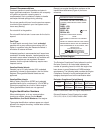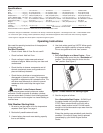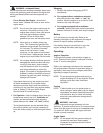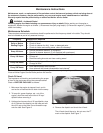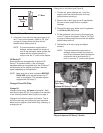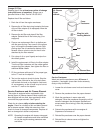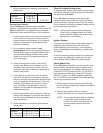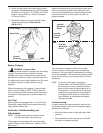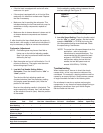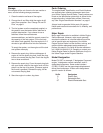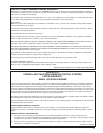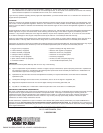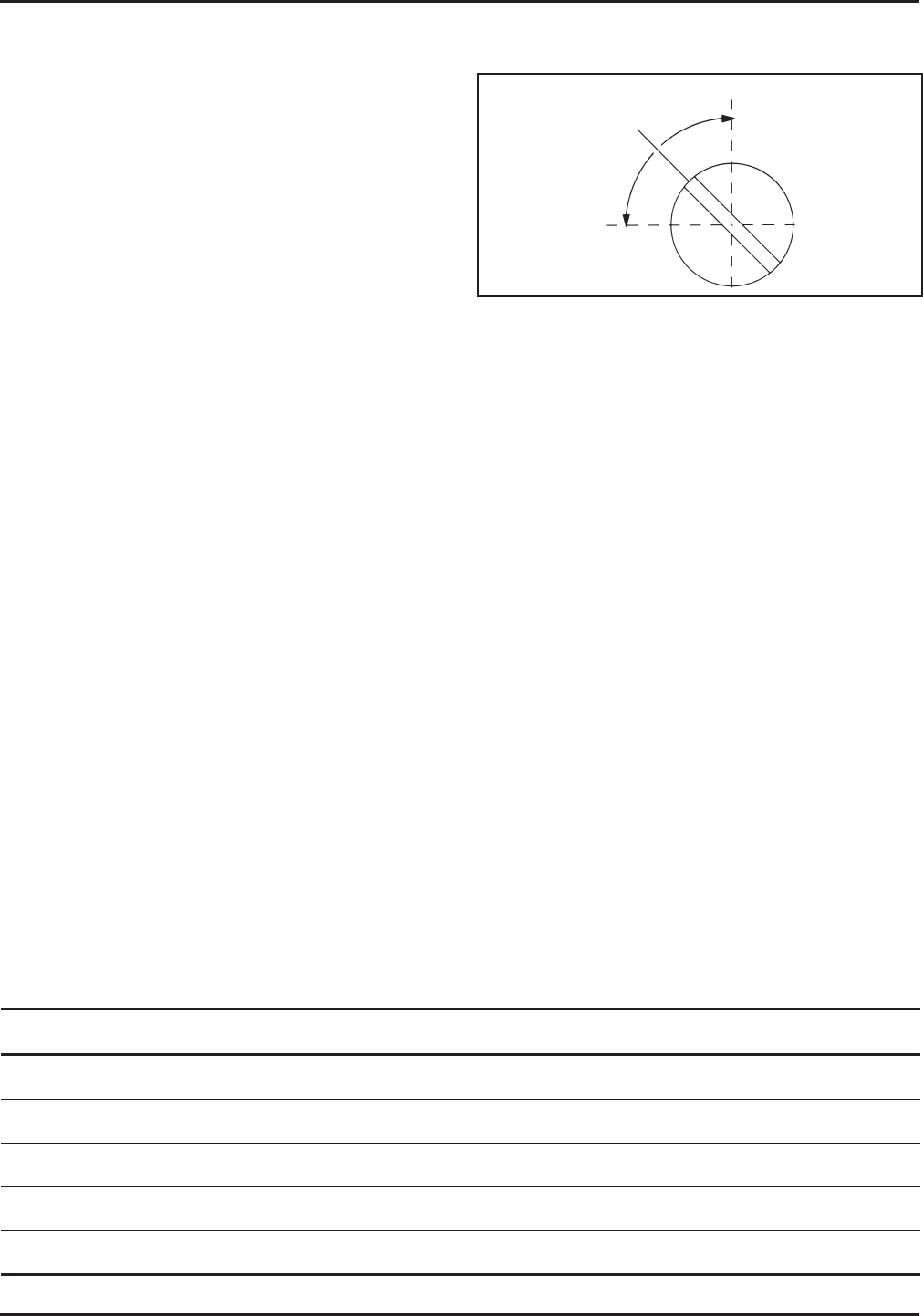
13
• If the fuel tank is equipped with a shut-off valve,
make sure it is open.
• If the engine is equipped with an in-line fuel filter,
make sure it is clean and unobstructed. Replace
the filter if necessary.
• Make sure fuel is reaching the carburetor. This
includes checking the fuel lines and fuel pump for
restrictions or faulty components, replace as
necessary.
• Make sure the air cleaner element is clean and all
air cleaner element components are fastened
securely.
If, after checking the items listed above, the engine is
hard to start, runs roughly, or stalls at low idle speed, it
may be necessary to adjust or service the carburetor.
Carburetor Adjustment
NOTE: Certified engines may have a fixed idle or
limiter cap on the idle fuel adjusting needle.
Step 2 can only be performed within the limits
allowed by the cap.
1. Start the engine and run at half throttle for 5 to 10
minutes to warm up. The engine must be warm
before doing steps 2 and 3.
2. Low Idle Fuel Needle Setting-Walbro
Carburetor: Place the throttle into the “idle” or
“slow” position.
Turn the low idle fuel adjusting needle out
(counterclockwise) from the preliminary setting
until engine speed decreases (rich). Note the
position of the needle.
Now turn the adjusting needle in (clockwise). The
engine speed may increase, then it will decrease
as the needle is turned in (lean). Note the position
of the needle.
Lean
Rich
Adjust to
Midpoint
Figure 12. Optimum Low Idle Fuel Setting.
3. Low Idle Speed Setting: Place the throttle control
into the “idle” or “slow” position. Set the low idle
speed to 1200 RPM* (± 75 RPM) by turning the
low idle speed adjusting screw in or out. Check
the speed using a tachometer.
*NOTE: The actual low idle speed depends on the
application – refer to equipment
manufacturer’s recommendations. The
recommended low idle speed for basic
engines is 1200 RPM. To ensure best
results when setting the low idle fuel
needle, the low idle speed must not
exceed 1200 RPM (± 75 RPM).
Troubleshooting
When troubles occur, be sure to check the simple
causes which, at first, may seem too obvious to be
considered. For example, a starting problem could be
caused by an empty fuel tank. Some common causes
of engine troubles are listed in the following table.
Do not attempt to service or replace major engine
components, or any items that require special timing or
adjustment procedures. Have your Kohler Engine
Service Dealer do this work.
Set the adjusting needle midway between the rich
and lean settings. See Figure 12.
Possible Cause No Improper Dirt In Dirty Incorrect Engine Dirty Air Faulty
Problem Fuel Fuel Fuel Line Grass Screen Oil Level Overloaded Cleaner Spark Plug
Will Not Start ••• ••••
Hard Starting ••• ••••
Stops Suddenly • •••••
Lacks Power •••••••
Operates Erratically ••• • ••
Knocks or Pings •• • •
Skips or Misfires ••• ••
Backfires ••••
Overheats •••••
High Fuel Consumption •••



